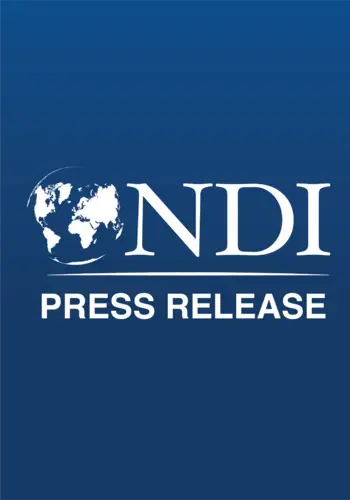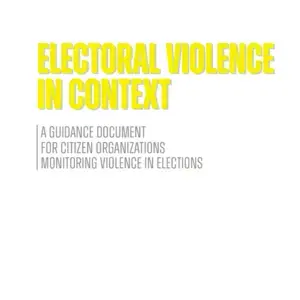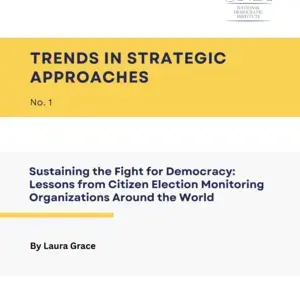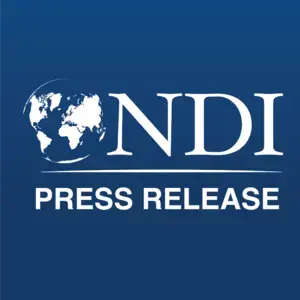Download release in Arabic | English | French
Download full statement in Arabic | English | French
For more information:
In Tunis, Gaby Senay, [email protected] +216 92 18 34 69
In Washington, Kathy Gest, [email protected] (+1) 202-728-5535
TUNIS, Tunisia – The Dec. 21 presidential run-off election was not only the third round of polls in Tunisia this fall but also the culmination of a constitutional and electoral phase that has lasted nearly four years. For the first time, Tunisians freely selected their president. According to the preliminary conclusions of the National Democratic Institute (NDI) delegation, the electoral process was smooth and well-organized.
Election officials were highly competent and voters demonstrated a strong familiarity with election day procedures, NDI said. Significant numbers of Tunisians participated in the election as voters, candidates, campaigners, observers and election administrators.
“This is the beginning of a new chapter for Tunisia. As a member of parliament with roots on both sides of the Mediterranean, I believe that the Tunisian public has high expectations of politicians for the months and years to come. I am inspired by the young Tunisians who continue to demand a better future,” said Zakia Khattabi, a member of the Belgian Parliament.
"Tunisians, despite the skepticism of many, have demonstrated a desire for, and the ability to deliver, a fair democratic election. They have raised the bar of what is possible. They have done their part. They have earned the right to expect that their president, members of parliament, and the international community will too raise the bar and do their part,” said Ken Dryden, former Minister of Social Development in Canada.
“The eyes of the world have turned toward Tunisia during this transition process. Now, it is the eyes of Tunisians that will be turned towards the president and elected leaders who have a chance to develop a model of governance based on tolerance and inclusion. These leaders should also implement laws and reforms that effectively improve the quality of peoples’ lives and protect hard-won political liberties,” added Darrell Dexter, former premier of the Canadian province of Nova Scotia.
Leslie Campbell, NDI’s senior associate and regional director for the Middle East and North Africa, was also part of the leadership of the delegation.
NDI launched its mission with the deployment of long-term observers in late June, beginning with the voter registration period, and received similar delegations of short-term observers for the legislative elections on Oct. 26 and the first round of the presidential election on Nov. 23. Forty-five observers representing 21 countries participated in this observation of the second-round presidential election. NDI visited more than 180 polling stations across 18 of 27 in-country districts.
The National Democratic Institute is a nonprofit, nonpartisan nongovernmental organization working to support and strengthen democratic institutions worldwide through citizen participation, openness and accountability in government. More information is available at www.ndi.org




